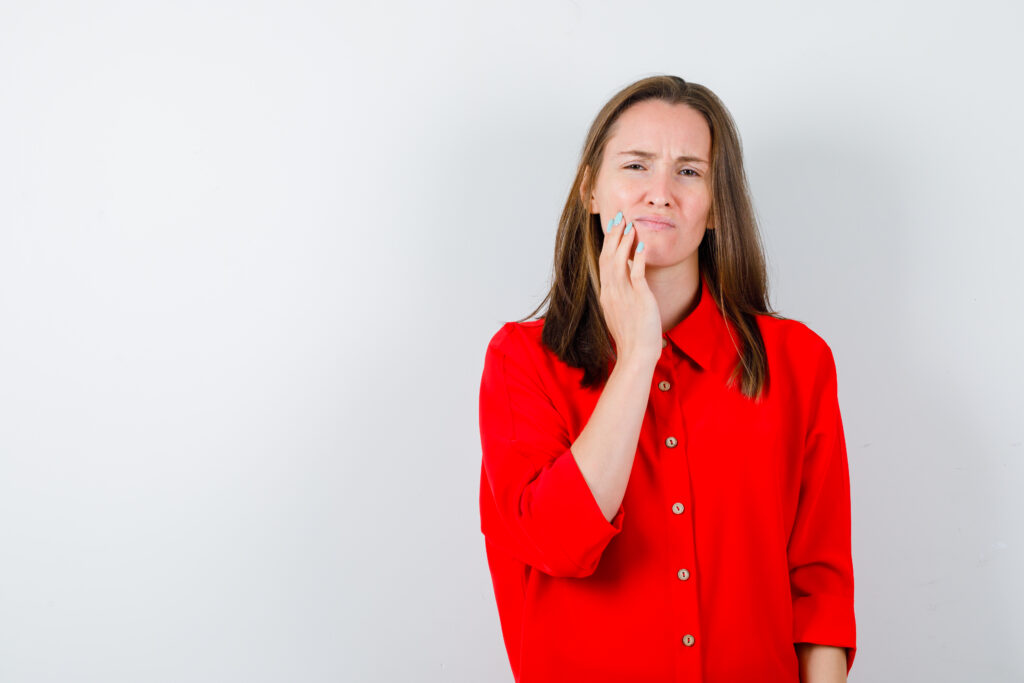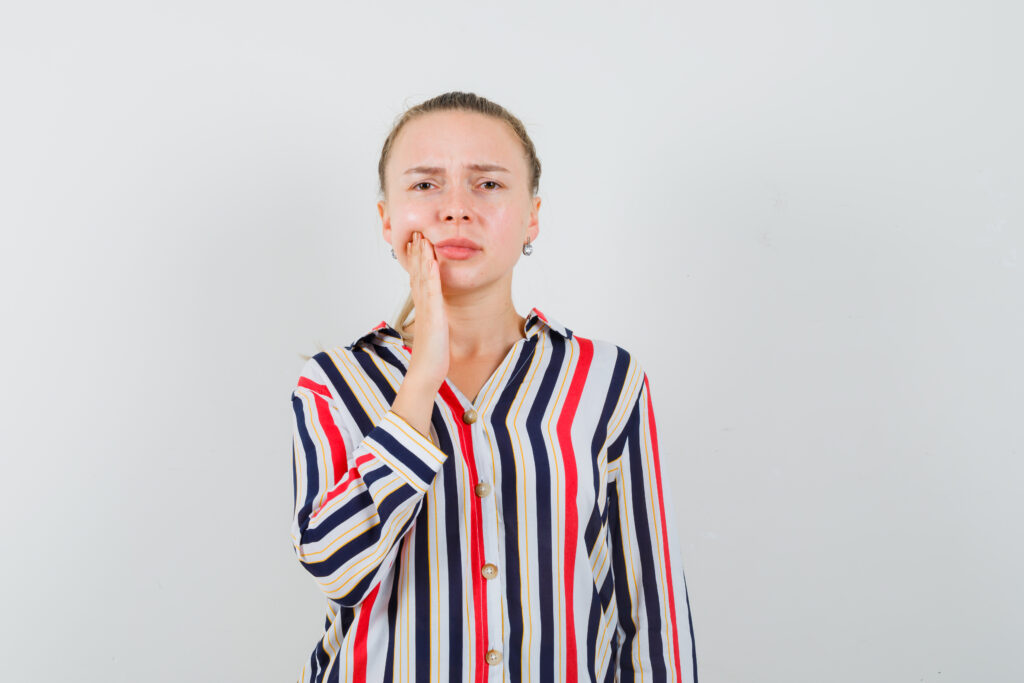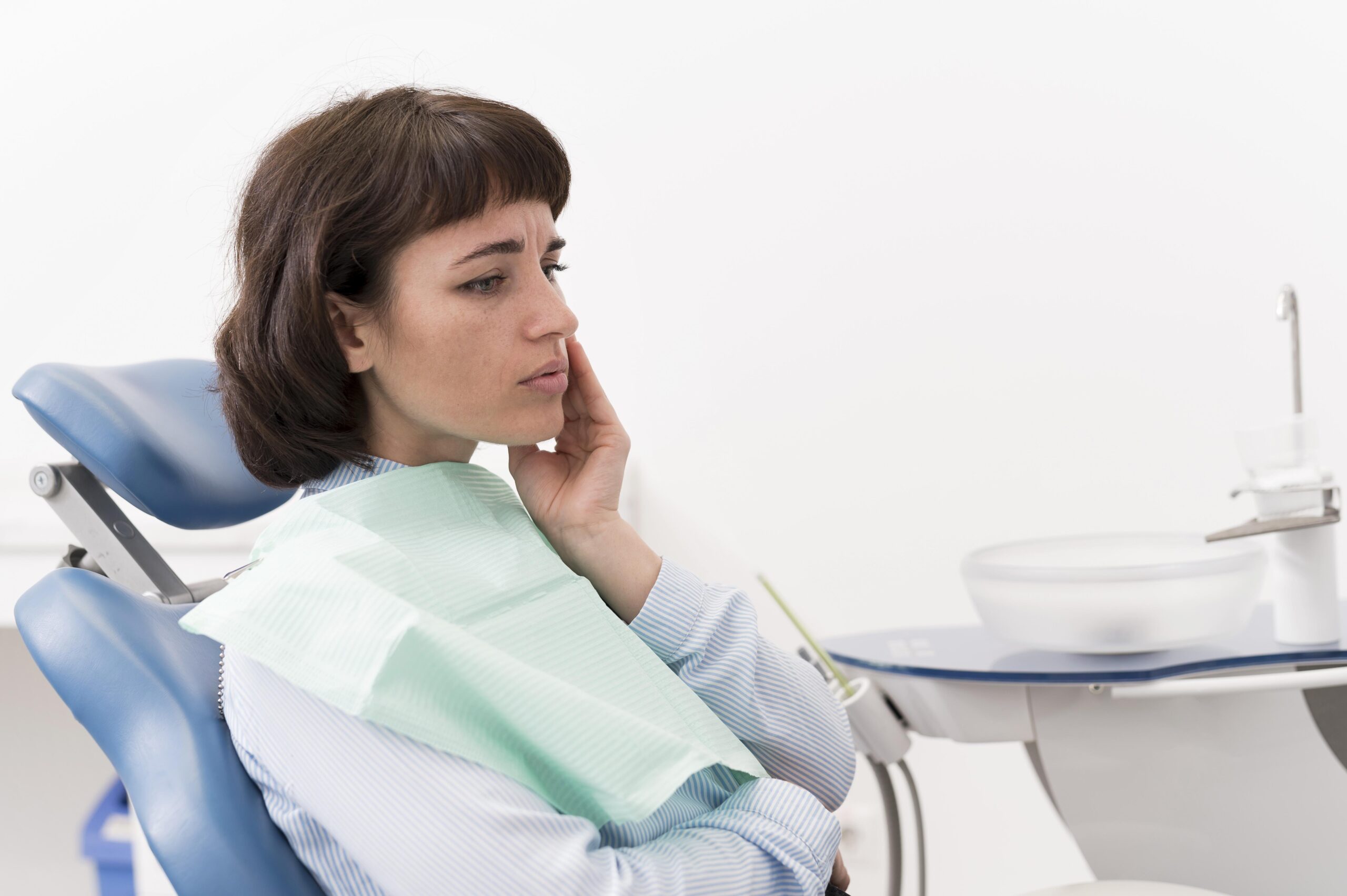Everything About Tooth Loss Symptoms and Treatment
Tooth loss can result in an unhealthy diet or eating habits, lower self-esteem, difficulties speaking, and a general decline in level of living.
The most common reasons for tooth loss are tooth decay (tooth decay), periodontitis (gum disease that is accompanied by loss of bone), and smoking.
Numerous studies have shown that patients who suffer from chronic illnesses more often suffer from dental problems that are not treated, which may lead to tooth loss.
Within U.S. adults 50 years or older, those suffering from particular chronic illnesses (such as heart disease, diabetes, or emphysema) are more likely to experience tooth loss.
Tooth loss is declining for older adults. In 2017-March 2020:
- One in 10 adults (11 percent) aged 65-74 years has lost all their teeth.
- Around 1 out of 5 adults (20 20 percent) aged 75 or older have lost all their teeth.
Tooth loss is usually avoidable. Good oral hygiene routines, self-care, and professional dental treatment can help prevent tooth loss.
What Causes Tooth Loss?
Losing teeth is a rite of passage in the earliest years of childhood. If you’re an adult, it indicates that something else might be happening. Dental cavities, gum disease, and trauma could trigger it.
Losing the permanent (adult) tooth is similar to pushing the first domino over. It can cause other issues with oral health, such as tooth loss, shifting, or jaw discomfort. If you do not treat dental loss early, it could result in further teeth coming out shortly. This cycle can be stopped by attending regular dental visits and maintaining excellent dental health at home.
How prevalent is tooth loss?
178 million adults in the U.S. have lost at least one tooth, and more than 40 million adults have lost all of their teeth.
Symptoms and Causes
What Are The Signs Of Tooth Loss?
A tooth loss could be a shock. However, you’ll be aware of it once it occurs. Here are some signs that could let you know you’re likely to lose teeth:
- Bad breath.
- Bleeding gums.
- Teeth lose.
- Swollen gums.
- Toothache.
Inform your dentist whenever you notice any of these signs or symptoms. A timely treatment could save your tooth.
What Is The Cause Of Tooth Loss?
Gum disease is the most common reason for tooth loss in adults. Other causes are:
- Cavities.
- Dental trauma as a result of an injury or accident.
- The grinding of the teeth (bruxism).
Treatment
- Hold your tooth with the top, also known as the crown; make sure you don’t contact the roots.
- Take a close look at the root and crown to determine if any component of one is broken or missing. Inform the dentist. The tooth’s damage could make it more difficult for a replant to succeed.
- Do not rub or scrape your tooth to remove blood, dirt, or food. Do not cover the tooth with cloth or tissue. This can damage the tooth’s surface, making it less likely to live.
- If your tooth is stained by dirt or any other substance, wash it using cow’s milk or saliva from your own. Avoid using tap water or place your tooth with running water because excessive tap water can destroy the tooth’s cells on its root surface, aiding in reattaching the tooth.
- Try to insert your tooth back into its socket. If your tooth isn’t fully into the socket, try biting slowly and gently onto gauze, napkins, or a damp paper towel to help hold the tooth in position. Keep the tooth in place until you can see your dentist.
- If you cannot put your tooth back into its socket, put it into a container containing milk from cows or your saliva, which you pour into the bottle. Use a product you can purchase without a prescription, which will preserve the tooth knocked out if you can access the product promptly. Find a product that has been certified by the American Dental Association.
- Get emergency dental care. If your dentist’s location isn’t open, visit the hospital’s emergency department.

The baby teeth can’t be replaced in the event of a knockout.
If you see an abrasive or shiny surface on permanent teeth, the root is likely still inside the socket. If so, the tooth could be inserted into the socket. However, replanting the tooth knocked out is more likely to fail.
Risk Factors
Risk factors can increase your risk of developing a particular condition. Ris factors for tooth loss are:
- Certain immune-mediated illnesses, such as Sjogren’s syndrome.
- Dry mouth.
- Hormonal changes that are similar to menopausal changes.
- Poor oral hygiene.
- Certain medications, particularly those which result in dry mouth.
- Smoking or using different types of tobacco.
- Inadequately managed diabetics (consistently with an A1C higher than 7 percent).
- Vaping.
Additionally, certain people are more susceptible to losing teeth, genetically speaking. If you’re a biological parent, grandparents, or siblings suffering from gum disease, it is more likely that you will suffer from this disease yourself.
Prevention
Adult (permanent) teeth begin to erupt at the age of six. Several preventive strategies can maintain and protect teeth and keep them healthy.
You can take steps to improve the health of your mouth and keep your teeth healthy, including:
- Daily brushing.
- Flossing daily.
- Beware of foods and drinks which are high in added sugar.
- A minimum of an annual dental exam (even if you do not have any natural teeth left).
- Having professional dental cleanings.
- You should schedule additional dental appointments if your doctor recommends them.
- Your health care provider about chronic conditions that could increase your risk of losing teeth.
While tooth loss is most prevalent in older adults, youngsters, and younger adults, they are also at risk of premature tooth loss due to untreated dental cavities and other factors.
Premature tooth loss in an infant prior to the time an adult tooth has emerged can result in different malocclusions (abnormal dental positions) and other problems.
Dental sealants can help prevent cavities for several years. Community water fluoridationwater fluoridation is an effective, safe, and readily accessible method of preventing cavities by strengthening, rebuilding, and protecting the tooth’s surface.
Recovery And Treatment
Dental professionals can provide treatment options that can help you restore missing teeth. Based on your requirements for treatment, you could be directed to a specialist in dentistry, like a periodontist or prosthodontist, who can help you restore the health of your mouth.
Outlook / Prognosis
What Are The Chances Of Tooth Loss?
Losing teeth isn’t risky in the sense that it is life-threatening. However, losing just one tooth could cause issues affecting your health and the quality of life. For instance, if you cannot chew your food properly, consuming certain foods won’t be easy. It is possible that you don’t get sufficient nutrition due to this.
Additionally, gum disease (the primary reason for teeth loss) is a bacterial infection that spreads through the bloodstream across your entire body.
Preventive treatment gives you the best chance of success. The most effective option is to visit your dentist regularly and maintain healthy oral hygiene at home. If you’ve lost one tooth (or all of your teeth), it’s not too late to get the care you’re entitled to.
Living With
When Should I Visit My Dentist?
Visit your dentist frequently for check-ups and cleanings. For certain people, it is recommended to visit once every six months. However, you may require longer-term visits if you are at risk of developing gum disease. Discuss with your dentist the frequency of teeth cleaning needs for the best results.
It is recommended that you consult with your dental professional when you experience bad breath, tooth loss, bleeding gums, or other indicators that you need to see a dentist.
How Can I Pose My Doctor?
If you’ve lost a single or several teeth, you may want to inquire with your dentist about:
- Do I require treatment for tooth loss?
- What kind of replacement for teeth would you recommend?
- Does my medical history affect my treatment options?
- How long will the treatment last?
- What the number of visits to the office do I need to make?
- What can I do to maintain my outcomes after treatment?

FAQs
Why Do My Teeth Suddenly Fall Out?
Losing teeth can result from gum decay, gum disease, or trauma.
Replacing lost teeth could decrease the chance of suffering from future dental health problems like shifty teeth, bone loss, and further tooth loss. Options include dental implants, bridges, and dentures.
Is It Possible To Treat Tooth Loss?
A dentist may offer treatments to restore missing teeth. Based on your requirements for treatment, you could be directed to a specialist in dentistry like a periodontist15 or prosthodontist16 who can help you restore the health of your mouth.
What Is The Typical Age At Which Teeth Are Lost For Adults?
The average 21-year-old American begins their adult life with just 28 teeth, but by the time they are 44, 69% are missing at least one tooth.
At 50, they’ve lost 12 of their teeth (including the wisdom tooth), and at the age of 75, they have lost 26% lost all their teeth.
What Do You Do If You Lose Teeth?
Water cannot preserve your tooth. If you don’t have liquid or saline solution, place the tooth in the mouth between your cheeks and gums. See a dentist.
The faster you can get to an appointment, the greater your chances of restoring your tooth. You can go to an urgent care center if no dentist is available Tooth Loss.

